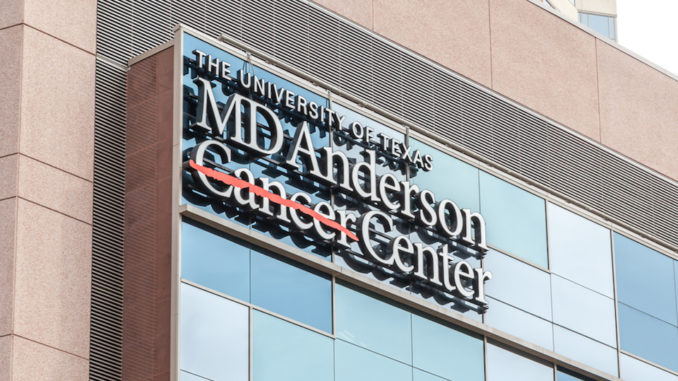
4D pharma plc (AIM: DDDD) and The University of Texas MD Anderson Cancer Center today announced a strategic collaboration to evaluate 4D’s Live Biotherapeutic oncology pipeline across a range of cancer settings.
The alliance brings together MD Anderson’s translational medicine and clinical research capabilities with 4D’s expertise in the discovery and development of Live Biotherapeutics. The collaboration will initially assess 4D’s lead oncology candidate, MRx0518, as a potential treatment for solid tumours.
The first clinical study, an open label Phase I study of MRx0518 in combination with Keytruda® and conducted in collaboration with Merck & Co., Inc., Kenilworth, NJ., USA, has been initiated and is due to open shortly. The study will enrol up to 132 patients with metastatic cancer across multiple histologies (non-small cell lung cancer, renal cell carcinoma, bladder cancer and melanoma) who have failed prior anti-PD-1 therapy.
Subsequent studies are also being planned under the collaboration, including using MRx0518 in combination with stereotactic body radiotherapy (SBRT) for the treatment of pancreatic cancer.
Duncan Peyton, 4D’s Chief Executive Officer, commented:
This alliance will provide a strong and long-term foundation for the development of 4D’s Live Biotherapeutics in cancer. The current study, which will be one of the first Live Biotherapeutic programmes to reach the clinic in the immuno-oncology space, represents an important step forward in the development of MRx0518 and 4D’s broader oncology franchise. We look forward to continuing to work with our partners at MD Anderson to progress this study and help bring this therapy to patients.
Live biotherapeutics employ strains of gut bacteria that have been isolated from healthy human donors, and which are encapsulated, administered orally and delivered to the gut as a therapeutic. Each strain is selected for its functionality to perform a specific role in combatting a disease.
MD Anderson is focused on providing the best possible care for cancer patients, including implementing the latest new treatment modalities,
said Shubham Pant, MBBS, associate professor of Investigational Cancer Therapeutics at MD Anderson.
The gut microbiome has emerged as an important next-generation target in cancer therapy and we hope that live biotherapeutics will have the potential to make a significant difference for patients across a range of cancers.
About MRx0518
The microbiome has been implicated in cancer treatment and response in a range of clinical settings. The microbiome profile of patients has been demonstrated to drive response to anti-PD-1 therapy in both melanoma and non-small cell lung cancer. MRx0518 has demonstrated robust efficacy as an immuno-stimulant and anti-tumour agent in multiple tumour models such as breast cancer, renal cell carcinoma and lung cancer.
About Phase I study
This study is pursuant to the clinical collaboration agreement entered into in June of this year with a subsidiary of Merck Sharpe & Dohme (tradename of Merck & Co., Inc., Kenilworth, N.J., USA).
The open label Phase I study will evaluate the safety, tolerability and preliminary clinical benefit of the combination of MRx0518 and Keytruda® in up to 132 participants who have progressed on prior PD-1 inhibitor therapy and will take place at the MD Anderson Cancer Center in Texas, US.
Participants will receive an intravenous infusion of Keytruda® every three weeks in combination with two capsules of MRx0518 daily for up to two years. The primary endpoints are safety, tolerability, and anti-tumour effect. Other outcome measures will also be assessed, including overall survival and biomarkers.
KEYTRUDA® is a registered trademark of Merck Sharp & Dohme Corp., a subsidiary of Merck & Co., Inc., Kenilworth, N.J., USA.

